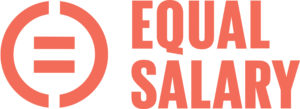The Great Resignation is a phenomenon that originated in the U.S. during the Pandemic and has rippled across the globe. Ultimately, workers want change after the Pandemic. They are looking for better.
If employers want to retain top talent, they need to act now before it’s too late. Could equal pay be the solution?
During the post-pandemic recovery, more than 4 million workers have resigned voluntarily from their jobs every month in the U.S. Even a tiny bump in wage can be a driving factor for unskilled workers. For the skilled workforce, it seems the pandemic has awakened a desire to achieve better; a better work-life balance, better pay and more meaningful ways of working.
In the EU, statistics show the number of women entering the skilled freelance market is increasing, indicating a more empowered female attitude to self-employment where women are choosing to take control of their own time, careers and income.
Employed individuals are striving for similar benefits. Time gained through lack of commuting and the erosion of the 9-5 structure has helped many to realise that a better work-life balance can be achieved within traditional employment.
The one-dimensional view that pay + benefits = loyalty no longer applies. Employees are evaluating their positions based on so many more factors, and organisations need to be more proactive in those areas. Listening to employees and addressing their concerns should be a top priority.
An article by Forbes gives details on what employees are typically looking for from their employers post-pandemic. These include:
- to feel included, valued and supported
- a better work-life balance and autonomy when it comes to managing schedules
- better pay
- more growth opportunities
Organisations that don’t value, trust or nurture their employees are already on the back foot. A cultural renovation is required, and offering equal pay is a great place to start.
Building a culture of inclusivity and equality with equal pay and flexible working policies will develop stronger diverse teams who are more productive, cohesive and loyal.
The Fair Pay Impact Report published by Payscale revealed that employees who felt their company was transparent about pay were 65% less likely to seek out new opportunities. Those employees who felt that their employers were not transparent were 183% more likely to actively look for other work.
Pay transparency and equal pay go hand in hand. Organisations need to work swiftly to ensure gender pay gaps are closed and make it clear that staff, regardless of gender, are paid equally for the same job or a job of the same value.
Even if you already have an equal pay policy in place, are you getting the best out of it? Has it been verified and promoted?
Organisations looking to capitalise on The Great Resignation need a competitive advantage. One way to cut through the noise and make you stand out as a trusted employer is to get EQUAL-SALARY Certified.
The EQUAL-SALARY certification
The EQUAL-SALARY certification is a process that allows companies to verify and communicate that they pay their female and male employees equally for the same job or for jobs of the same value. It is aimed at companies in all countries and across all industries with 50 or more employees (of which at least 10 are women) that are committed to closing the wage gap.
When you get certified, it’s a chance to put your values into action. To prove your commitment to equal pay for all. That means added value for your company, better employee recruitment and retention, more diversity in your team, a stronger reputation and much more. Plus you get the bonus of knowing that you’re doing the right thing.
Help your organization stand out for all the right reasons and get certified today.



